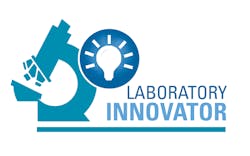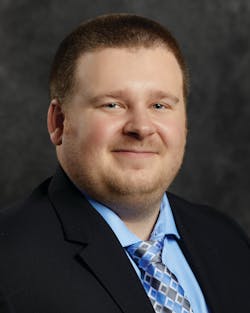Why did you choose to pursue a career in clinical laboratory management? What appealed to you about a specialization in hematology testing?
When the COVID-19 pandemic first erupted in Michigan in 2020, what steps did the clinical laboratory at Memorial Healthcare take to respond? When did the lab introduce SARS-CoV-2 testing?
Memorial Healthcare rapidly identified the best method, equipment, and approach that fit our laboratory and our community. We purchased, installed, validated equipment, and were operational within about 17 days. During this same time period, we established a triage center on our main campus for all respiratory patients and built a drive-thru test site at the hospital that we continue to operate to this day. We began testing for COVID-19 on March 23, 2020, and we have been performing 100% of our COVID-related testing since that time.
What key lessons did you learn in the lab’s response early in the COVID-19 pandemic that you’ve applied to the subsequent surges in cases and demand for testing?
We quickly learned that no sole vendor can keep up with pandemic level demands. We currently have five vendors for this testing alone. As recently as a month ago, we brought in a new vendor. We also learned how to adapt to the lack of testing product availability. So instead, we validated numerous swabs, including 3-D printed models, and many types of liquid medias for transport, including our own version brewed on-site with the World Health Organization’s recipe. This helped Memorial Healthcare combat the immense shortages early on with both of these key products.
Our spaces also quickly needed to be adjusted. We converted our cytology office to testing space and our manager’s office to storage space. We relocated our pathologist’s office outside of the primary lab area, so we could convert the previous office space to refrigerated and frozen storage of testing supplies and specimens. We also gained many new friends and colleagues between sharing supplies and supporting each other with the hard-to-find items that are causing testing bottlenecks. None of this was on the radar before COVID-19.
As a regional healthcare center, will you describe the role your lab has played in the state of Michigan’s response to the pandemic?
Memorial Healthcare supported our community immediately. And true to our nature as a local independent facility, we ensured we could handle everything locally first but then expanded to support other systems as well. For example, we supported external emergency rooms, pre-procedure testing needs for other facilities, as well as overflow testing from schools, skilled nursing facilities, and jails. We also have partnered with new clients to support their outreach needs, specifically for SARS-CoV-2 and other diagnostic needs.
How many SARS-CoV-2 tests does your lab perform daily — on average? What is the range of daily SARS-CoV-2 tests performed at your lab?
We currently perform 300-500 tests daily for SARS-CoV-2 detection. This varies throughout each surge, but our highest single day test count reached approximately 700. We offer multiplex assays, rapid testing, and RT-PCR SARS-CoV-2 specific assays as well.
What is the current vacancy rate at your lab? What strategies have you found to be successful in recruiting and/or retaining staff?
We have, like many labs, vacancies at both the scientist level as well as at the phlebotomy level. Overall, we lack approximately 5.0 full-time equivalents (FTEs) from our fully staffed budget. However, something that was important to Memorial Healthcare, which was successful, was to continue student training during the pandemic. This preserved our new employee pipeline and encouraged students to enter the laboratory field. We also have started a clinical rotation for individuals with bachelor’s degrees, so they would be eligible, with clinical experience, to sit for certification.
For retention purposes, we have been very flexible with our staff to preserve work-life balance and avoid burnout. We’ve supported the challenges of being a parent during the pandemic. For example, we converted to compressed scheduling (i.e., seven days on and seven days off or four 10-hour workdays) to help working parents balance daycare needs and remote instruction for their school-aged children. This has been a challenging time in the staffing area for sure. Prior to the COVID-19 pandemic, we had nearly no vacancies at the scientist level, and minimal openings in the phlebotomy department.


